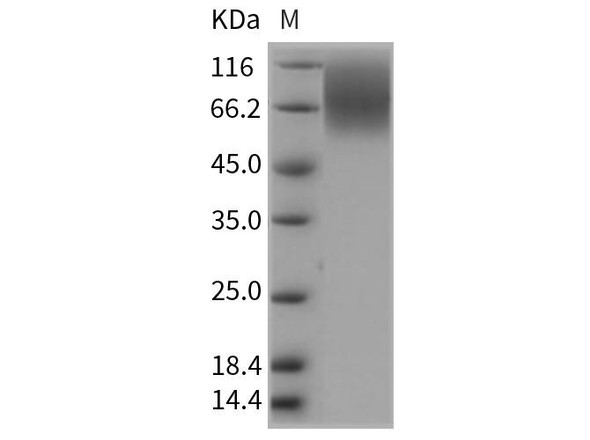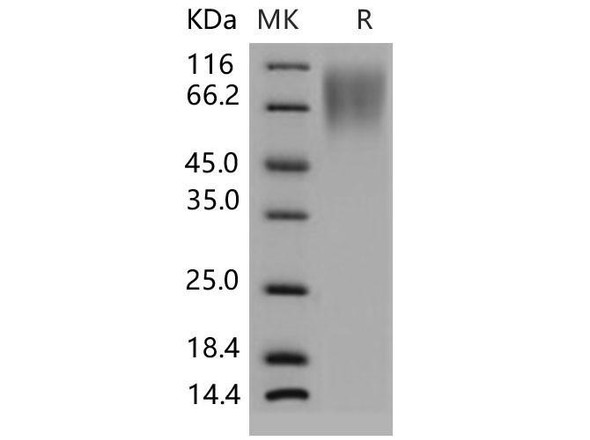Human CEACAM1/CD66a Recombinant Protein (RPES3964)
- SKU:
- RPES3964
- Product Type:
- Recombinant Protein
- Species:
- Human
Frequently bought together:
Description
system_update_altDatasheet
Human CEACAM1/CD66a Recombinant Protein
Carcinoembryonic Antigen-Related Cell Adhesion Molecule 1 (CEACAM1) is a member of the Carcinoembryonic Antigen (CEA) family, which belongs to the immunoglobulin superfamily. CEACAM1 is originally described in bile ducts of liver as biliary glycoprotein. Subsequently, it is found to be a cell-cell adhesion molecule detected on leukocytes, epithelia, and endothelia. CEACAM1 mediates cell adhesion via homophilic as well as heterophilic binding to other proteins of the subgroup. In addition, CEACAM1 plays a important role in the differentiation and arrangement of tissue three-dimensional structure, angiogenesis, apoptosis, tumor suppression, metastasis, and the modulation of innate and adaptive immune responses.
| Product Name: | Human CEACAM1/CD66a Recombinant Protein (RPES3964) |
| Product Code: | RPES3964 |
| Size: | 10µg |
| Species: | Human |
| Expressed Host: | Human Cells |
| Synonyms: | Carcinoembryonic Antigen-Related Cell Adhesion Molecule 1, Biliary Glycoprotein 1, BGP-1, CD66a, CEACAM1, BGP, BGP1 |
| Accession: | P13688 |
| Sequence: | Gln35-Gly428 |
| Fusion tag: | C-His |
| Endotoxin: | <1.0 EU per µg as determined by the LAL method. |
| Protein Construction: | Recombinant Human CEACAM1 is produced by our Mammalian expression system and the target gene encoding Gln35-Gly428 is expressed with a 6His tag at the C-terminus. |
| Purity: | > 90% as determined by reducing SDS-PAGE. |
| Mol Mass: | 44.33 kDa |
| AP Mol Mass: | 90 kDa |
| Formulation: | Lyophilized from a 0.2 µm filtered solution of 20mM PB, 150mM NaCl, pH 7.2. |
| Shipping: | This product is provided as lyophilized powder which is shipped with ice packs. |
| Stability and Storage: | Lyophilized proteins are stable for up to 12 months when stored at -20 to -80°C. Reconstituted protein solution can be stored at 4-8°C for 2-7 days. Aliquots of reconstituted samples are stable at < -20°C for 3 months. |










